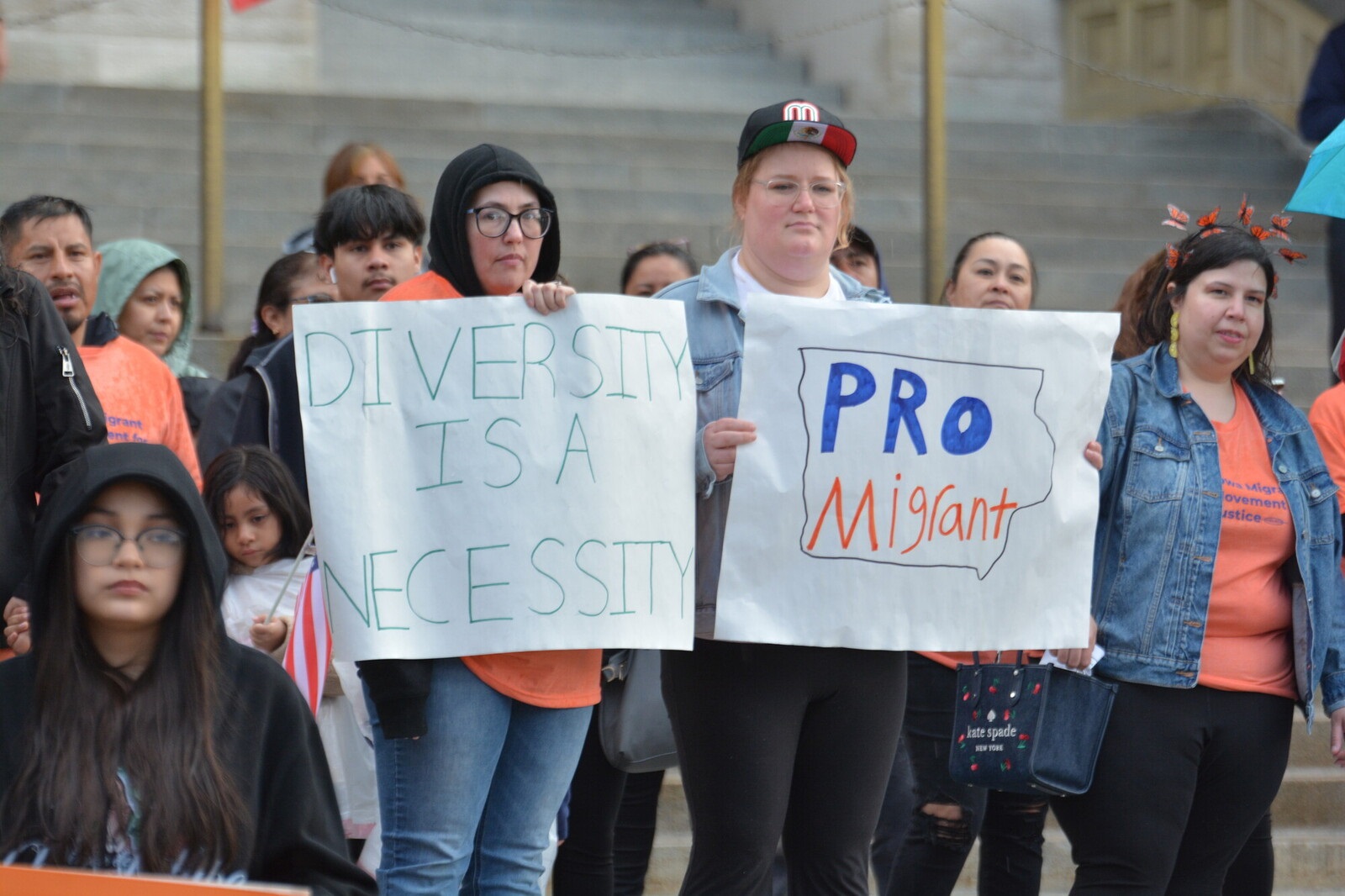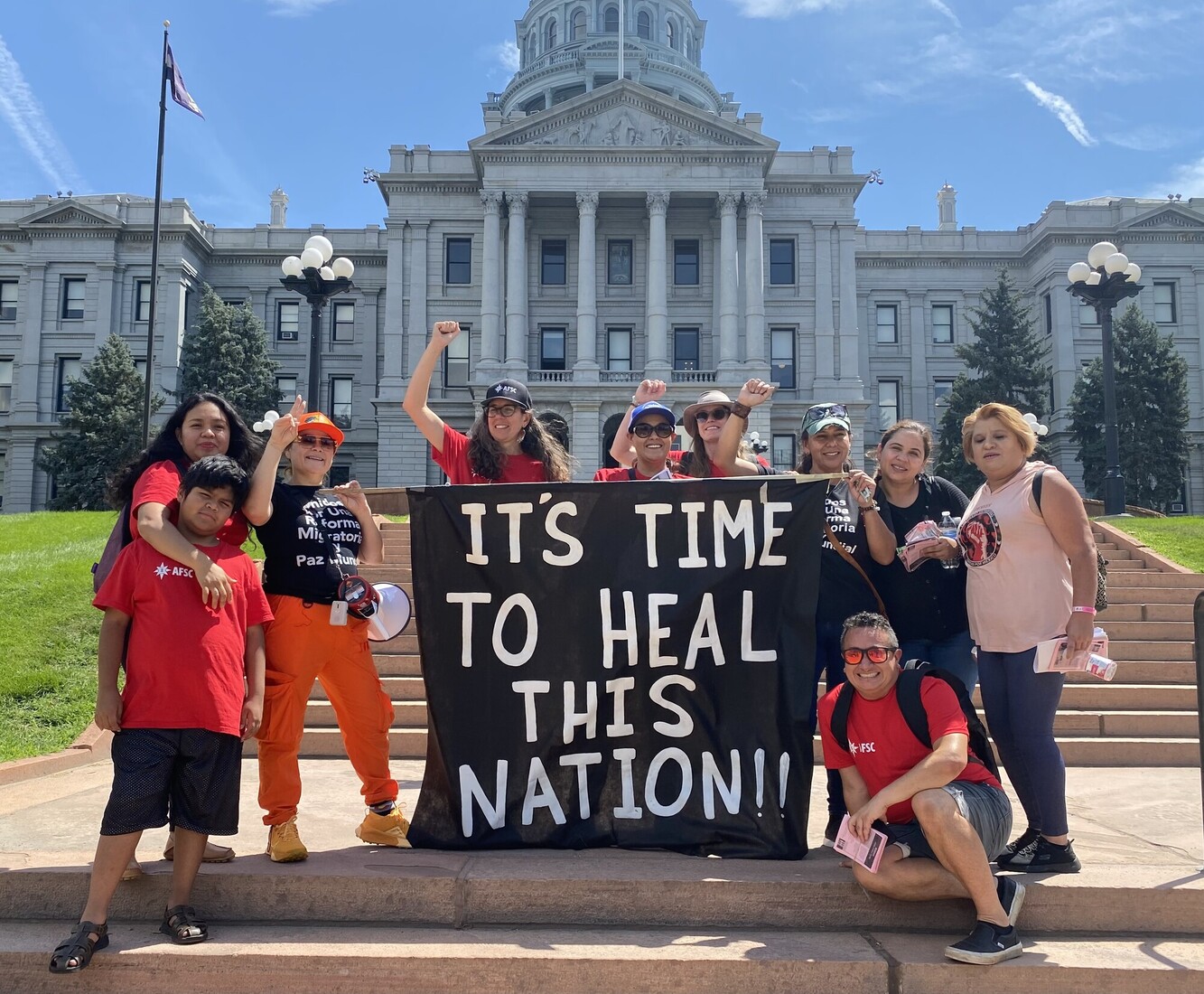
A rally in support of immigrant rights in Iowa. Jon Krieg/AFSC
At AFSC, we welcome all people no matter where they were born, or when or how they choose to migrate. We know that immigrants make our communities stronger, and we value the many contributions of immigrant leaders and organizers.
We also know that when we turn on the news, we'll likely see a lot of anti-immigrant messages. And in recent times, the national conversation about immigration has only gotten worse.
Fortunately, the majority of people in the U.S.—74%—actually do want an immigration system that welcomes people and treats them with dignity. And there are effective messages we can use to break through the noise and vitriol of this moment.
Whether you’re having dinner with family members who disagree on politics or responding to a friend on social media, here are five tips to change someone’s mind about immigration in the U.S. These tips are the results of research from AFSC and others, such as the ACLU, Goodwin Simon Strategic Research, and The Opportunity Agenda.
1. Always start with shared values.
Whenever you start a conversation on a touchy subject, lead with something you and your listener both value. That creates space in their minds for open conversation.
For example, start with a message like “Everyone deserves a chance to build a good life for themselves and their families.” That helps frame a conversation on immigration with people who may never have met anyone from outside the U.S. but who share widely held values like freedom and opportunity.
2. Focus on our shared humanity and the diverse contributions that we all make to our communities.
We are all human. We all contribute to our communities. We all love our friends and family. And we all make mistakes. Talking about each other as full, complicated, messy humans—including immigrants—humanizes people and cuts through the demonizing rhetoric we see in the media.
Many times, pro-immigrant conversations focus on the economic contributions that immigrants make to communities. It’s important to go beyond these messages to talk about the kinds of contributions we all make to our communities. We’re not just workers but also neighbors, friends, family members, and more. This kind of messaging helps humanize everyone’s complexities and contributions, including immigrants.
3. Address listeners’ fears indirectly.
It’s important to acknowledge people’s fears, which can be exacerbated by misinformation in the media. Some of these fears have nothing to do with immigrants.
But we can also provide accurate information and real stories of immigrants that can help people work through those fears. AFSC is just one of many organizations that welcomes newcomers, supports immigrants as they pursue efforts toward residency and citizenship, and advocates to keep families together. You can indirectly address people’s fears by describing some of these efforts.
4. Model the change you want to see.
Telling stories about your personal growth or how you have changed your own mind gives your listener permission to be open-minded. It also serves as a roadmap for how to grow, too.
Try sharing a story from your own life about meeting someone from another country and getting to know them as a full person, quirks and all. Show how you interacted with each other in some way. That might include helping each other at work or volunteering together in your community. Talk about how you grew or evolved in your own thinking as a result.
5. If your listener isn’t listening, talk past them to the people who are.
Even if someone doesn’t agree with you right away, it doesn’t mean you haven’t planted a seed in their mind—or in the minds of other listeners.
To cut through the noise and political rhetoric, tell a story that starts with a shared value. Focus on our shared humanity, calm someone’s fears, and, ultimately, show how you have grown.
Want to learn more about how to talk about immigration? Watch our webinar on how to have "hard conversations" about immigration from our recent webinar series.

